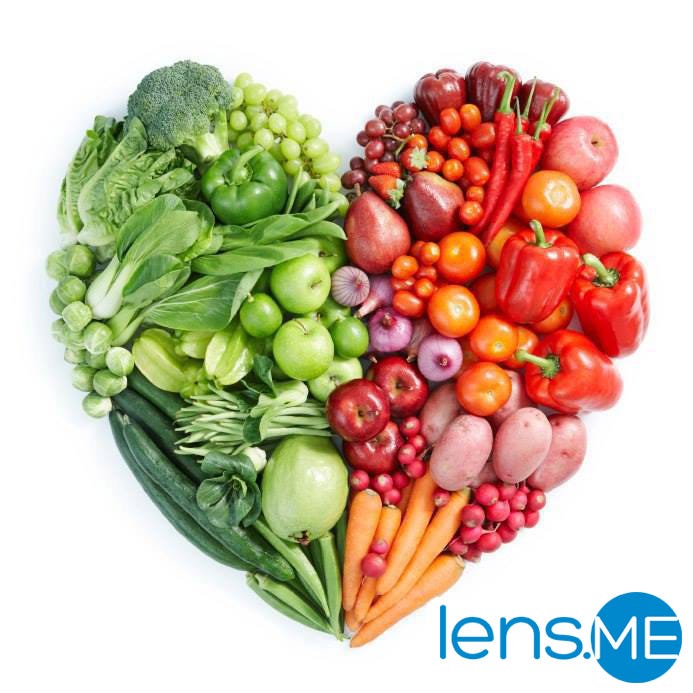Terms and ConditionsPrivacy Policy Consumer Rights
©Copyright 2025 by lens.me. All Rights Reserved.Eye doctors advise for: Nutrition
Especially in the Middle Easter countries like the GCC and other places where there is mostly desert, the access to vegetables and superfoods is limited to imported vegetables and fruits.
Still, it is important for the health of your eyes to eat plenty of green leaf vegetables and most of all - eat them fresh. This is valid if you wear contact lenses or if you don't.
Even in Riyadh, Abu Dhabi, Dubai and Kuwait, there is a wide selection of vegetables in supermarkets which will help you to cover your eye health requirements of Vitamins.
The links between nutrition and eye health are strong, and as scientists delve deeper into the subject, more foods are found to be beneficial to eyes. Below is a list of the best foods and ingredients for those looking for simple, healthy treatments.

Eye-friendly foods
There are many foods that are valuable for maintaining eye health as they contain vitamins, minerals, and other elements that help ward off certain eye diseases and keep eyes in good working order.
Fruits
Oranges, tangerines, dried apricots, grapefruit and tomatoes are loaded with vitamins A, C and E. These antioxidants play a role in keeping the tissues and cells in your eyes healthy.
Vegetables
Green peas and beans, peppers, and green leafy vegetables, such as kale and spinach, contain vitamins B and C, which are both good for your eyes. Carrots possess beta-carotene, which the body converts into vitamin A, one of the vitamins that's important for good eye health. Beta-carotene also helps improve vision in low light. Dark green leafy vegetables, walnuts, flaxseeds and flaxseed oil contain omega-3 fatty acids, although the human body doesn't absorb the acids very well from these sources. Yellow peppers, broccoli and chard contain Lutein, and orange sweet peppers, spinach, corn contain Zeaxanthin, which are antioxidants that may help prevent age-related macular degeneration (AMD).
Fish
Salmon, sardines, halibut and white tuna are rich in omega-3 fatty acids, which help to prevent the development of eye disease.
Legumes
Legumes such as lima beans, kidney beans, peanuts and black-eyed peas are high in zinc. This mineral helps prevent damage caused by light exposure.
What about supplements?
As of yet, there is no consensus about the benefits of taking supplements for eye health, particularly for AMD and cataracts. Several research studies have explored the benefits of supplements, such as the Age-Related Eye Disease Study (AREDS) and AREDS2, but it seems that patients with AMD may only benefit from supplements at various stages of the disease.
Take supplements for eye health only if your diet lacks vitamins and minerals, or if your ophthalmologist or nutritionist recommend them.
Eat fresh
Eating fresh and nutritious food is essential for general body health, and the positive links between nutrition and eye health show that your eyes benefit as well.
Source: yellowpages.ca



